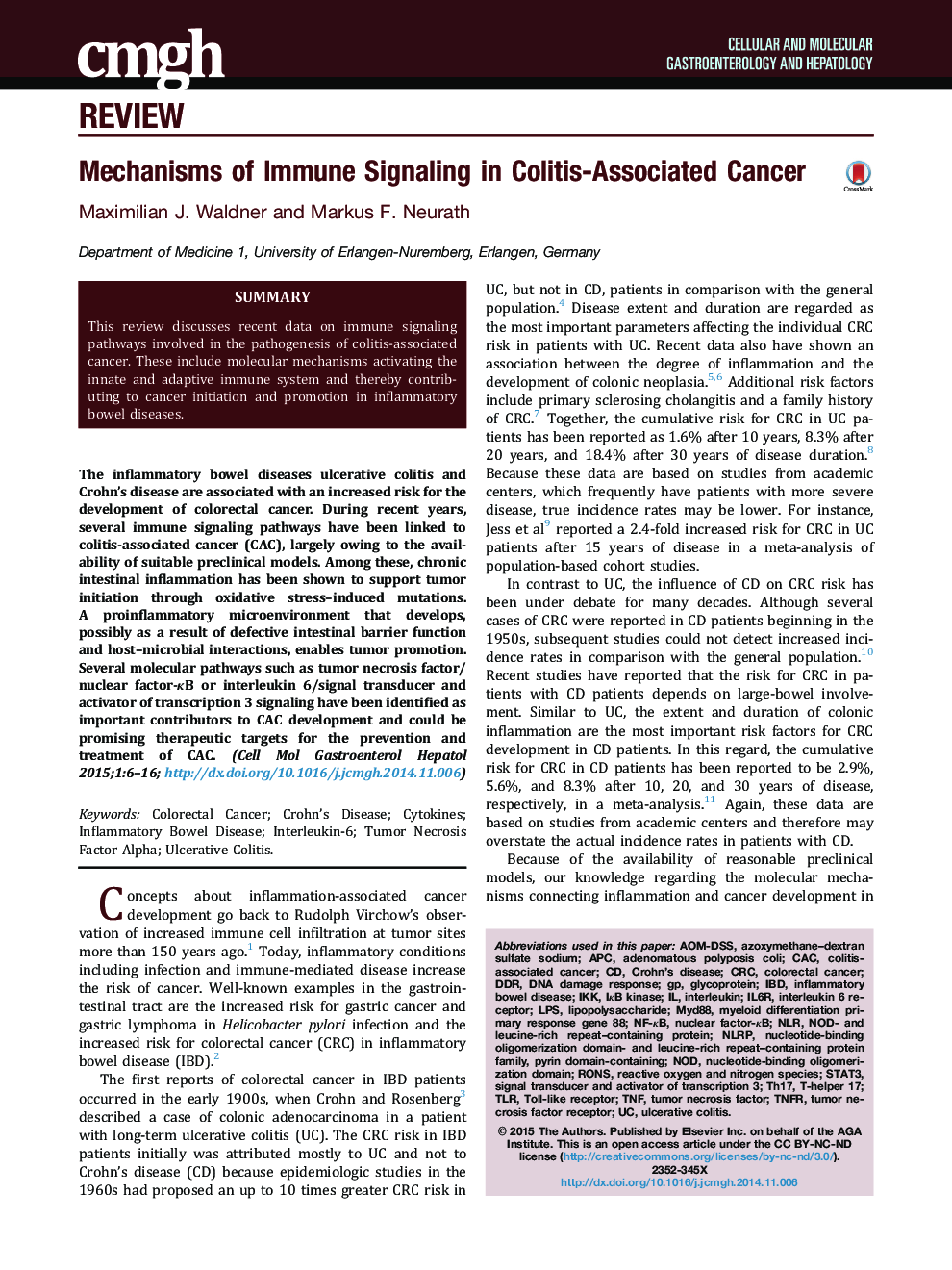| Article ID | Journal | Published Year | Pages | File Type |
|---|---|---|---|---|
| 2041779 | CMGH Cellular and Molecular Gastroenterology and Hepatology | 2015 | 11 Pages |
The inflammatory bowel diseases ulcerative colitis and Crohn’s disease are associated with an increased risk for the development of colorectal cancer. During recent years, several immune signaling pathways have been linked to colitis-associated cancer (CAC), largely owing to the availability of suitable preclinical models. Among these, chronic intestinal inflammation has been shown to support tumor initiation through oxidative stress–induced mutations. A proinflammatory microenvironment that develops, possibly as a result of defective intestinal barrier function and host–microbial interactions, enables tumor promotion. Several molecular pathways such as tumor necrosis factor/nuclear factor-κB or interleukin 6/signal transducer and activator of transcription 3 signaling have been identified as important contributors to CAC development and could be promising therapeutic targets for the prevention and treatment of CAC.
